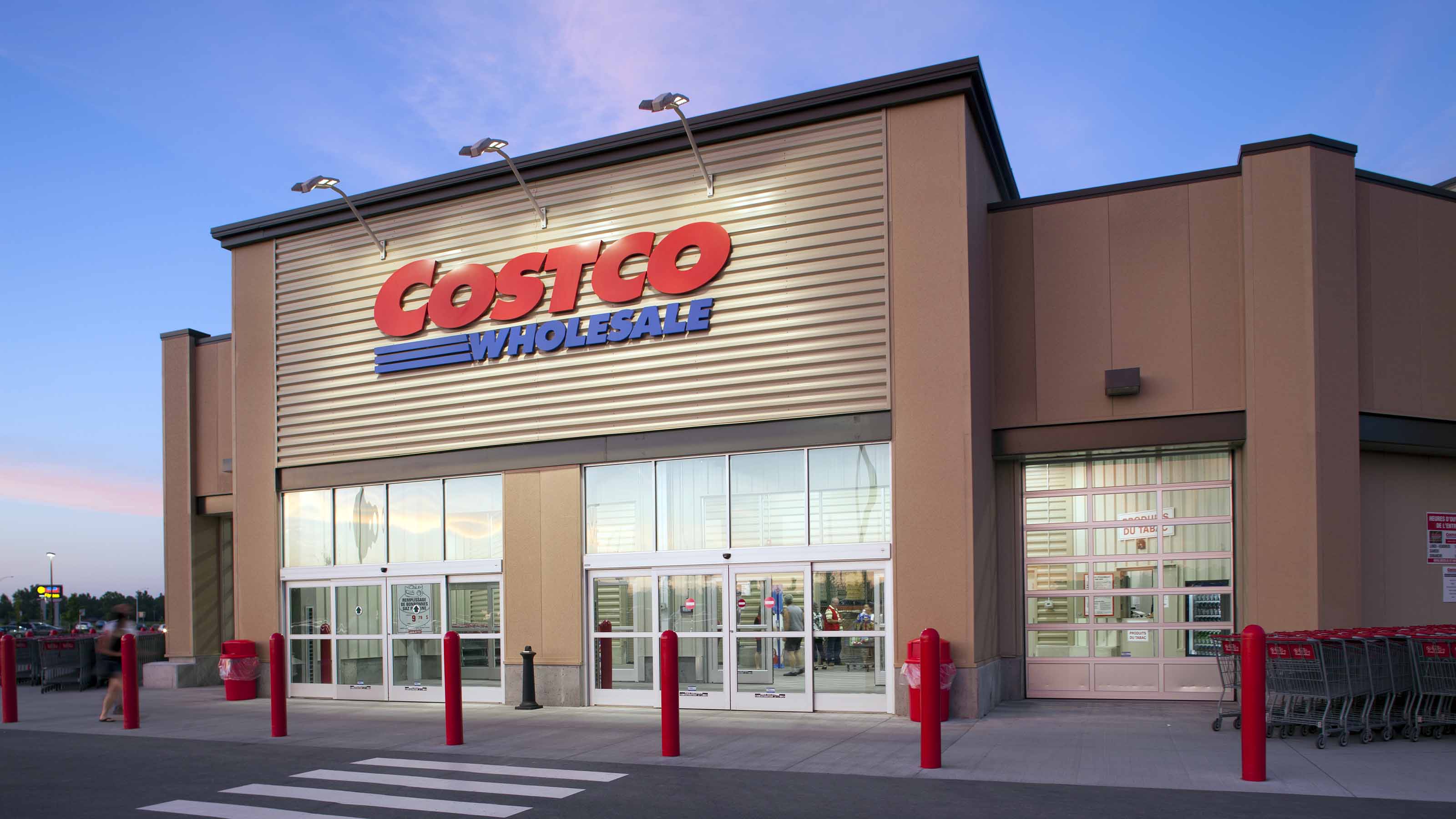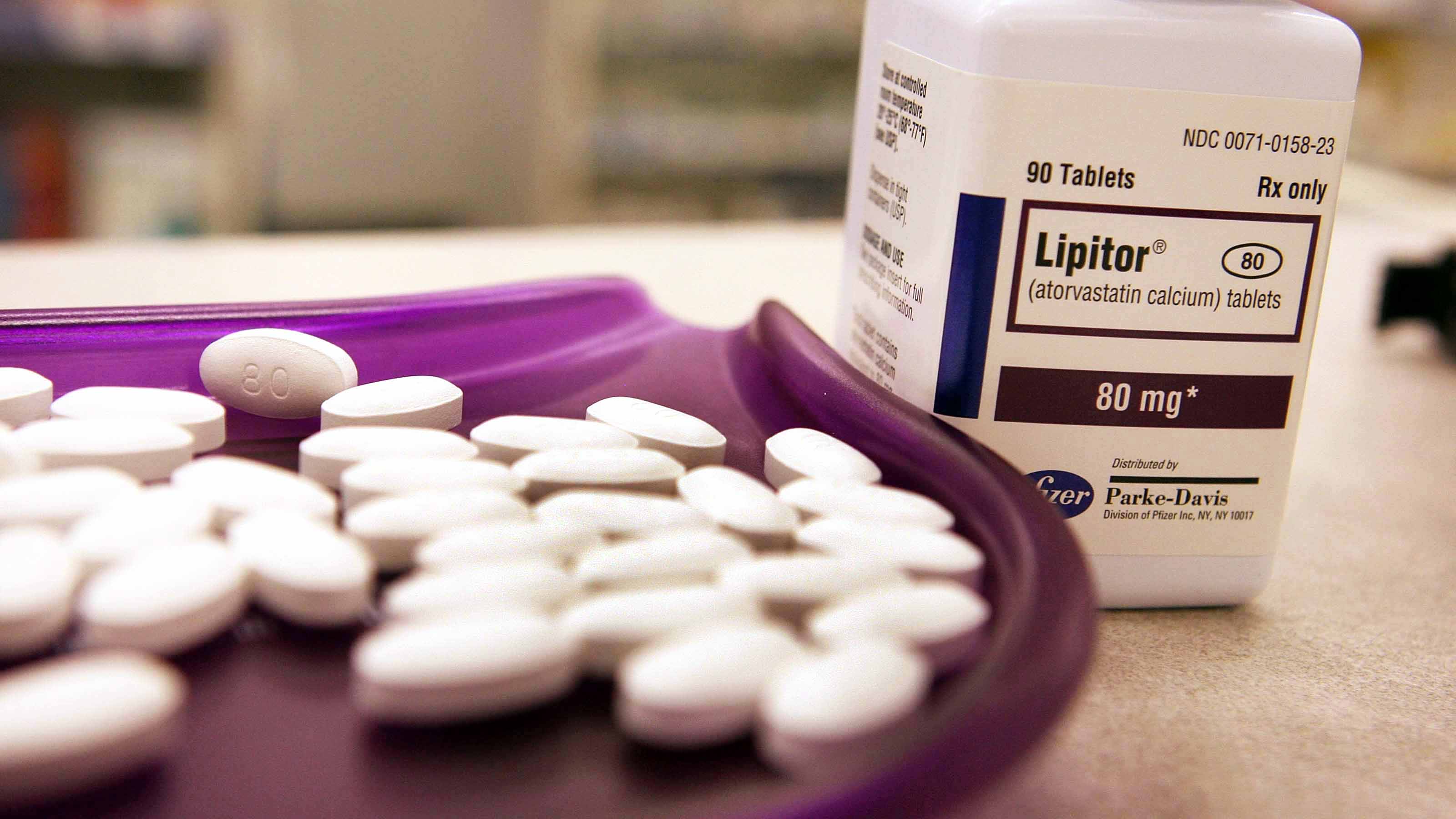6 Beautifully Boring Dividend Stocks
Instead of popular but volatile stocks, owning under-the-radar defensive gems will let you sleep at night.


Profit and prosper with the best of Kiplinger's advice on investing, taxes, retirement, personal finance and much more. Delivered daily. Enter your email in the box and click Sign Me Up.
You are now subscribed
Your newsletter sign-up was successful
Want to add more newsletters?

Delivered daily
Kiplinger Today
Profit and prosper with the best of Kiplinger's advice on investing, taxes, retirement, personal finance and much more delivered daily. Smart money moves start here.

Sent five days a week
Kiplinger A Step Ahead
Get practical help to make better financial decisions in your everyday life, from spending to savings on top deals.

Delivered daily
Kiplinger Closing Bell
Get today's biggest financial and investing headlines delivered to your inbox every day the U.S. stock market is open.

Sent twice a week
Kiplinger Adviser Intel
Financial pros across the country share best practices and fresh tactics to preserve and grow your wealth.

Delivered weekly
Kiplinger Tax Tips
Trim your federal and state tax bills with practical tax-planning and tax-cutting strategies.

Sent twice a week
Kiplinger Retirement Tips
Your twice-a-week guide to planning and enjoying a financially secure and richly rewarding retirement

Sent bimonthly.
Kiplinger Adviser Angle
Insights for advisers, wealth managers and other financial professionals.

Sent twice a week
Kiplinger Investing Weekly
Your twice-a-week roundup of promising stocks, funds, companies and industries you should consider, ones you should avoid, and why.

Sent weekly for six weeks
Kiplinger Invest for Retirement
Your step-by-step six-part series on how to invest for retirement, from devising a successful strategy to exactly which investments to choose.
The sexiest, most popular stocks have a speculative allure that's hard to deny. Names like GameStop (GME), Tesla (TSLA) and Virgin Galactic (SPCE) get the paparazzi treatment from the media, grab the attention of day traders and often top the list of Wall Street's big daily gainers – and losers.
Hype comes at a price. High-profile stocks tend to have pricey valuations and short or inconsistent track records. Wild price swings can make it hard to stay invested if you can't deal with nail-biting volatility. Instead, consider some lower-profile and less-volatile dividend stocks.
"Boring is beautiful," says Jim Tierney, chief investment officer of concentrated U.S. growth at fund company AllianceBernstein. "These under-the-radar stocks that have very predictable businesses – they work."
Sleep-tight stocks tend to be established firms with a competitive advantage in slow-growth industries. They generate predictable sales and profit growth, no matter whether the economy is booming or contracting. They tend to be financially stable, with strong balance sheets, which reduces the odds that they'll get into financial trouble and allows them to pay dividends.
"Steady Eddie" dividend stocks take the edge off investing, says Nick Kalivas, Head of Factor and Core ETF Strategies, for the ETFs & Indexed Strategies business at Invesco. "Slow and steady wins the race."
Most of the time, the less volatile the business, the less volatile the stock. One of the hallmarks of a "boring" stock is a low beta, which measures a stock's volatility relative to the overall market. The S&P 500 has a beta of 1. So, a stock with a beta of 0.90 moves 10% less in price than the broad market gauge. Just be aware that volatility works in two directions. Less-volatile stocks won't reap the gains in up markets that their jumpier cousins will, and it's worth noting that the market’s rebound from last year's bear market has left low-volatility indexes in the dust.
But you might be ready to swap a ride on the roller coaster for some steadier – if more incremental – gains. We found six low-profile dividend stocks with potentially high rewards.
Data is as of Aug. 6. Dividend yields are calculated by annualizing the most recent payout and dividing by the share price. Volatility (as measured by beta) relative to the overall market over the past five years.

Costco Wholesale
- Beta: 0.66
- Dividend yield: 0.72%
- One-year annualized total return: 31.8%
- Three-year annualized total return: 27.2%
If losing less in bear markets helps you sleep at night, consider adding Costco Wholesale (COST, $440) to your portfolio.
The low-frills warehouse retailer is known for its loyal membership base, who pay an annual fee to buy in bulk and save money. In last year's bear market, Costco shares fell less than 12%, compared with a 34% slide for the S&P 500. And that wasn't just because it was an essential business during the pandemic. In the 2007-09 bear market, Costco shares fell less than 40%, compared with a 57% plunge for the broad market.
The dividend stock is a steady performer, outperforming the S&P 500 in the past two-, three-, five- and 10-year periods.
Costco's recurring revenues, thanks to its membership model, allow it to generate a steady stream of sales and profits in all economic environments. Nine out of 10 members renew each year.
The ability to regularly raise its annual fee gives Costco all-important pricing power, say analysts at investment firm Stifel, which rates the stock a Buy. Stifel expects the wholesale retailer to increase its membership fees in the next 12 months by 8%, which would boost a Gold Star member's rate by $5 to $65 per year. The hike would boost Costco's annual earnings per share by 58 cents over the next two years, a 5% increase above current estimates.
Grocery and gas offerings will continue to drive traffic to Costco's stores, adds analyst Zain Akbari at investment research firm Morningstar: "We expect Costco's durable competitive advantages to lead to consistent, strong performance."

Medtronic
- Beta: 0.81
- Dividend yield: 1.96%
- One-year annualized total return: 35.4%
- Three-year annualized total return: 14.3%
The pandemic slowed sales at the medical device maker as elective procedures were postponed. But a return to more normal scheduling bodes well. And Medtronic's (MDT, $129) broad product mix, continued investment in new devices, 49,000-plus patents and long list of hospital clients is a prescription for steady growth and a diversified revenue stream, says Mike Liss, senior portfolio manager at American Century Investments.
Medtronic's devices treat 70 health conditions and include pacemakers, implantable heart monitors and insulin pumps. The company's emphasis on rolling out new products sharpens its competitive edge. Says Morningstar senior analyst Debbie Wang: "Medtronic has historically bolstered its wide moat with both evolutionary and revolutionary leaps in innovation."
As far as dividend stocks go, this one is a steady grower. In May, Medtronic upped its annual dividend by 9%, marking the 44th straight annual increase. The stock yields 2%.
After Medtronic reported a 159% rise in profits for the fourth quarter of the 2021 fiscal year (which ended April 30) and boosted its fiscal 2022 profit outlook, Wall Street firm Argus Research increased its 12-month price target for the stock to $150, representing a potential gain of 16% from its recent close.

PepsiCo
- Beta: 0.61
- Dividend yield: 2.79%
- One-year annualized total return: 16.6%
- Three-year annualized total return: 12.3%
You've heard of Pepsi, of course. And you've probably binged on a bag of Lay's potato chips. But you might not know that 11 of the 15 top-selling products in convenience stores come from PepsiCo (PEP, $154) and that Frito-Lay is the world's best-selling snack food brand, according to Argus Research.
PepsiCo is more than a beverage behemoth, as its Frito-Lay and Quaker products now account for more than half of sales and 65% of profits, says Morningstar analyst Nicholas Johnson. Iconic brands coupled with consistent sales of both soft drinks and salty snacks provides a protective moat around PepsiCo's business – which generated $70 billion in sales last year.
Something else to feast on: "PepsiCo is a dividend-paying machine," says Daniel Peris, manager of Federated Hermes Strategic Value Dividend. In June, the consumer staples giant hiked its payout by 5%, the 49th straight year of increases. The stock yields 2.8%, more than double the 1.3% yield of the S&P 500.

Pfizer
- Beta: 0.73
- Dividend yield: 3.46%
- One-year annualized total return: 25.2%
- Three-year annualized total return: 7.4%
As the pandemic made clear, companies that make life-saving drugs are arguably immune to recession. Pfizer's (PFE, $45) COVID-19 vaccine and other drugs have strong demand in both healthy and ailing economies.
Simply put, people get sick and need their meds.
Defense-oriented investors will also appreciate that Pfizer is 27% less volatile than the S&P 500 and sports a plump dividend yield of 3.5%. In last year's bear market, the stock fell 21% while the S&P 500 lost more than one-third of its value.
Analysts expect continued strong sales for the drugmaker's COVID-19 vaccine. But Pfizer isn't a one-trick pony. Key products such as Eliquis (a blood thinner), Ibrance (which treats breast cancer) and Prevnar (a vaccine that helps prevent pneumococcal disease) also delivered strong second-quarter results, causing Pfizer to boost its annual 2021 sales forecast by 10%.
Overall, management expects at least 6% compound annual sales growth through 2025, excluding COVID-19 vaccines, and double-digit growth in per-share earnings – an outlook suggesting steady business expansion.
Pfizer trades at 11.5 times its estimated profits over the next four quarters, half the multiple of the S&P 500 and less richly priced than peers such as Johnson & Johnson (JNJ), Merck (MRK) and Eli Lilly (LLY).

Republic Services
- Beta: 0.71
- Dividend yield: 1.56%
- One-year annualized total return: 36.5%
- Three-year annualized total return: 19.0%
Taking out the garbage is an all-too-familiar chore in American households – which means hauling it away is a business with staying power. That makes shares in Republic Services (RSG, $118), the second-biggest waste hauler in North America, a Buy, say analysts at investment firm Stifel, who like the recession-resistant nature of the business. Stifel's 12-month target for the stock is $142, representing a 20% gain from its recent close.
Republic's business should improve as the economy reopens, and a strong second-quarter bodes well for the future. Revenues increased nearly 15% compared with the same quarter a year ago, and free cash flow – the cash left over after spending to maintain the business – came in at $545 million, more than the $302 million forecast.
A number of other bullish drivers should support the stock. A stronger inflationary environment allows Republic to pass along higher costs to customers. New in-truck technology that powers real-time routing systems allows drivers to save time and make more stops – which boosts revenue – on daily routes. The company's successful growth-by-acquisition strategy should also continue to add value.
Finally, Republic's shares could benefit from a greenish tint that appeals to environmentally minded investors, thanks to the firm's commitment to phasing out diesel-powered trucks with an electric truck fleet, turning organic waste into a renewable source of electricity and boosting recycling efficiency.

Zoetis
- Beta: 0.65
- Dividend yield: 0.50%
- One-year annualized total return: 25.7%
- Three-year annualized total return: 30.2%
Everyone knows Snoopy and Scooby-Doo, but the name Zoetis (ZTS, $202) might draw a blank. Zoetis is a leading animal health company that makes medicines for dogs, other pets and livestock. The stock has delivered double-digit percentage gains every year since going public in January 2013, despite being one-third less volatile than the S&P 500.
Demand for veterinary care is on the rise. More pet owners are spending on Zoetis meds such as Simparica Trio, a monthly chewable that protects dogs against fleas and ticks, heartworm disease, and other ailments, and Cytopoint, which provides itch relief for dogs.
And two trends that emerged during the pandemic should boost sales for Zoetis: a surge in pet adoptions and more people working from home (which means they're more apt to notice their pets' health issues). That makes it a good time for investors to take advantage of the growing tendency for pet owners to morph into pet parents, treating their animals like their own kids. "Zoetis is riding that trend," says AllianceBernstein's Tierney.
Double-digit earnings growth is the norm for the pet pharma stock in more years than not. And Zoetis is on track for a 17% profit jump this year and 13% next year, Tierney says.
The stock yields a modest 0.50%, but Zoetis has increased its dividend every year since its initial public offering (IPO).
Profit and prosper with the best of Kiplinger's advice on investing, taxes, retirement, personal finance and much more. Delivered daily. Enter your email in the box and click Sign Me Up.

Adam Shell is a veteran financial journalist who covers retirement, personal finance, financial markets, and Wall Street. He has written for USA Today, Investor's Business Daily and other publications.
-
 Dow Adds 1,206 Points to Top 50,000: Stock Market Today
Dow Adds 1,206 Points to Top 50,000: Stock Market TodayThe S&P 500 and Nasdaq also had strong finishes to a volatile week, with beaten-down tech stocks outperforming.
-
 Ask the Tax Editor: Federal Income Tax Deductions
Ask the Tax Editor: Federal Income Tax DeductionsAsk the Editor In this week's Ask the Editor Q&A, Joy Taylor answers questions on federal income tax deductions
-
 States With No-Fault Car Insurance Laws (and How No-Fault Car Insurance Works)
States With No-Fault Car Insurance Laws (and How No-Fault Car Insurance Works)A breakdown of the confusing rules around no-fault car insurance in every state where it exists.
-
 Dow Adds 1,206 Points to Top 50,000: Stock Market Today
Dow Adds 1,206 Points to Top 50,000: Stock Market TodayThe S&P 500 and Nasdaq also had strong finishes to a volatile week, with beaten-down tech stocks outperforming.
-
 Stocks Sink With Alphabet, Bitcoin: Stock Market Today
Stocks Sink With Alphabet, Bitcoin: Stock Market TodayA dismal round of jobs data did little to lift sentiment on Thursday.
-
 Dow Leads in Mixed Session on Amgen Earnings: Stock Market Today
Dow Leads in Mixed Session on Amgen Earnings: Stock Market TodayThe rest of Wall Street struggled as Advanced Micro Devices earnings caused a chip-stock sell-off.
-
 Nasdaq Slides 1.4% on Big Tech Questions: Stock Market Today
Nasdaq Slides 1.4% on Big Tech Questions: Stock Market TodayPalantir Technologies proves at least one publicly traded company can spend a lot of money on AI and make a lot of money on AI.
-
 Fed Vibes Lift Stocks, Dow Up 515 Points: Stock Market Today
Fed Vibes Lift Stocks, Dow Up 515 Points: Stock Market TodayIncoming economic data, including the January jobs report, has been delayed again by another federal government shutdown.
-
 Stocks Close Down as Gold, Silver Spiral: Stock Market Today
Stocks Close Down as Gold, Silver Spiral: Stock Market TodayA "long-overdue correction" temporarily halted a massive rally in gold and silver, while the Dow took a hit from negative reactions to blue-chip earnings.
-
 Nasdaq Drops 172 Points on MSFT AI Spend: Stock Market Today
Nasdaq Drops 172 Points on MSFT AI Spend: Stock Market TodayMicrosoft, Meta Platforms and a mid-cap energy stock have a lot to say about the state of the AI revolution today.
-
 S&P 500 Tops 7,000, Fed Pauses Rate Cuts: Stock Market Today
S&P 500 Tops 7,000, Fed Pauses Rate Cuts: Stock Market TodayInvestors, traders and speculators will probably have to wait until after Jerome Powell steps down for the next Fed rate cut.
